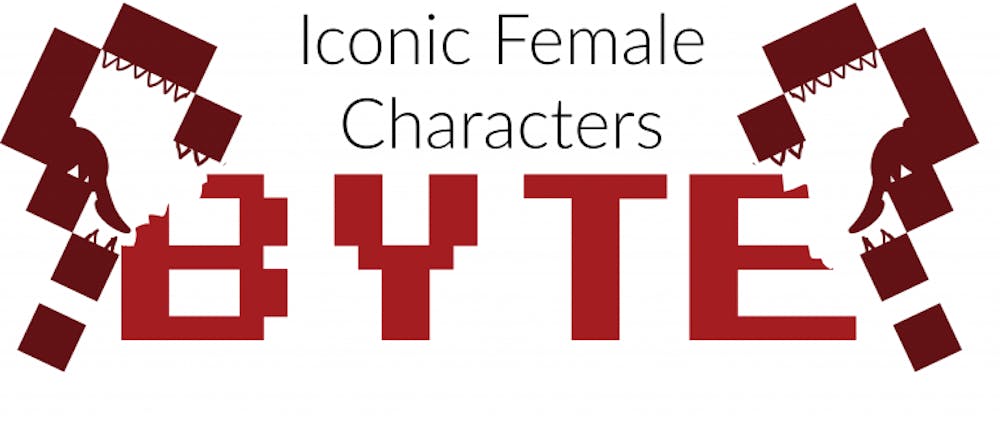In honor of Women’s History Month, Byte is doing a month long Byteing Question about the most iconic female characters and why they matter. Every day two writers will look at two characters that are important to them in many different ways. Today, we look at Patsy Walker and Katara.
by Kelsey Hayes
Known as Hellcat in Marvel comics, Patricia “Trish” or even “Patsy” Walker is a notable character in the Netflix show Jessica Jones. She’s Jessica’s best friend, host of a popular radio show, and a former child star. She’s not the proudest of her past, and she resents her mother because of it. Unlike Jessica, she has no super powers, so why is this supporting character so important? Let me tell you why.
Even though Patsy may not have any super powers she makes up for it in making sure that Jessica isn’t doing anything stupid. She cares, sometimes a little too much as it puts herself into some danger in the show. Patsy takes self-defense classes because in her words, “I’ve let you [Jessica] fight my battles for too long.” Jessica doesn’t approve of the defense classes at first, but comes to accept that her best friend will do what she wants.
Patsy is loyal, something any good friend should be. She shows that not being super powered doesn’t make you defenseless. Everyone is strong suited in some aspect. Her popular radio show helps in the aspect when she’s trying to raise awareness about Kilgrave, who basically kidnapped Jessica.
I tend to be drawn towards strong female characters in shows, someone who I can relate to in a way, and model my life after. I’ve been doing that for years. Patsy meets most of my criteria mostly because her personality matches my own in certain ways. Her caring nature being the big one, something I know myself to have. She also has the willingness to defend, physically, the ones she loves. While that may not apply to real-life so much, it’s a great trait to have. Patsy is a great role model for young women, mainly because the show is definitely not for kids. The biggest takeaway is that not being super-powered doesn’t make you defenseless.
by Emily Reuben
When thinking of powerful women in animation, it is almost impossible to ignore Katara. In a genre that is guilty of portraying very little diversity, Katara shines as not only an incredibly strong fighter, but an intelligent and complicated traveling companion.
I have always admired the cultural diversity present in the Avatar universe, and Katara has always held a special place in my heart for her defiant personality and uniqueness. Many female characters fall victim to the “mother role”, which is typically used as an excuse for a lack of physical power. Katara manages to act as a mother figure to most of the main characters while also being more than capable of taking them head on in battle. She isn’t just a pretty face to compliment the two other boys in her group, in many cases, she exceeds the abilities of her companions and manages to save the day.
A prime example of this is when she and Aang finally reach the North Pole to receive training in Water Bending. When Katara is told that because she is a woman she is forbidden to Water Bend, she becomes extremely angry and proceeds to fight the master, demonstrating that her gender does not determine her physical strength. This has always stood out to me as an important moment in animation. Most “gender messages” in animation seem extremely forced and often don’t convey a sincere portal of women. In Katara’s case, the viewers have grown with the character and have seen how powerful she has become. When she is denied the ability to grow any further, I as a viewer, felt angry. I genuinely wanted her to succeed.
While the “girl power” episode in Avatar showcases Katara’s strength and determination, I feel that the show does a much better job at developing her sense of morality. In many cases, Katara is faced with difficult decisions such as the ethics of Blood Bending and choosing between forgiving her mother’s murderer or killing him. These two instances really stuck with me because in both cases, Katara was in a situation of power and able to obtain revenge, but she chooses against doing so.
The concept of revenge and forgiveness is rarely dealt with in children’s programming, and a large portion of the show’s darker situations tend to revolve around Katara. I have always loved the darker situations thrust upon Katara because they allow her to suffer, and therefore to me, Katara’s struggle with morality is something relatable and completely real. Everyone has to make difficult decisions, and Katara shows that despite the hardships, forgiveness, sympathy, and virtue should never be cast aside.






